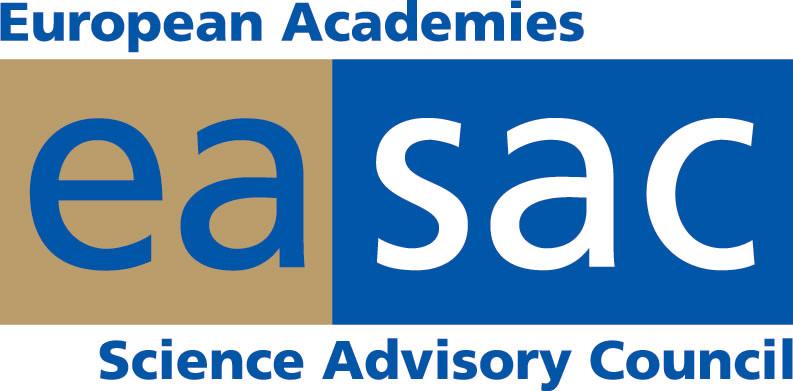Programme / Thematic session III/b – The Science-Policy Interface: Implementation of Agenda 2030 and the SDGs
‹ back to Programme listerDay
Friday / 22 NOV
10:45 - 12:00
With just a few years left to 2030, transformative and accelerated actions are needed aiming at fulfilling the Global Goals and the 2030 Agenda for Sustainable Development. Many countries are, however, heading in the wrong direction, and the impacts of climate change and loss of biodiversity on our lives are increasing, with damaging effects on health, poverty, hunger and pollution of land and the oceans.
Scientists have a responsibility to guide policymakers in their decisions because science has a unique role in providing solutions to how to address many of the global challenges we are facing. Politicians and scientists therefore need to build channels for requesting and receiving advice. Scientists also need to strengthen the communication with citizens to give everybody the opportunity to actively participate in the public debate on scientific issues and, not least, to be able to put pressure on policymakers. Additionally, scientists need to strengthen partnerships with other knowledge systems of humanity, for example, the traditional knowledge of Indigenous Peoples and local communities.
Academies of science have an important role in providing independent evidence-based science advice to policymakers. The European Academies’ Science Advisory Council, EASAC, an affiliated network of the global InterAcademy Partnership network, mobilizes Europe’s leading scientists to guide EU policy for the benefit of society by bringing together the National Academies of Science of the EU Member States, Norway, Switzerland and UK.
The focus of this thematic session will be on science for policy work connected to the SDGs, the Agenda 2030 and the Paris agreement, focusing on the impact of climate change not only on extreme weather events, but also on biological diversity and health. A keynote address will be followed by shorter contributions and a moderated discussion.
Keynote message: Helena Nader: Science for Global Transformation: recommendations by the S20 academies
followed by Introduction to Science for Policy advice by Academies: Helena Nader and Wim van Saarloos (in discussion)
Short contributions:
Rosa Castro: Scientific advice to address climate change’s (unequal) impacts on health
Thomas Elmqvist: Food production and food security in a changing climate
Zsolt Molnár: Knowledge co-production between science and traditional, indigenous and local knowledge in global science-policy fora on biodiversity (IPBES, CBD)
Round-table discussion: Helena Nader, Rosa Castro, Thomas Elmqvist, and Zsolt Molnár; Moderator: Wim van Saarloos
Summary of the session by session rapporteur Dr Gábor Kecskés, Associate Professor, Széchenyi István University:
The focus of the thematic session (organized by European Academies Science Advisory Council – EASAC) was the analysis of impact of science for policy work connected to the SDGs, with regard to climate change, biological diversity, and health.
The keynote address was presented by Helena, Nader. Dr Nader introduced the S20 initiative (Science20), which has been declared as a side-document of the G20 countries recent meeting held in Rio de Janeiro. The S20 initiative (Science for Global Transformation communiqué) as well as the host nation's Brazilian approach focuses on artificial intelligence, bioeconomy, energy transition process, health challenges, and social justice. By means of recommendations, these five crucial scientific fields shall play a significant role in the global transformation of our challenging times. Dr Nader emphasized that the application of artificial intelligence is a relevant driver for development and tackling climate change.
Rosa Castro identified climate change as a major health threat, however, it has widely differing impacts on vulnerable groups (such as minorities, elderly people, and children). Therefore, science and policy should also focus on such unbalanced exposure of negative effects with regard to any sectors of policymaking.
Thomas Elmqvist addressed the issue of food safety, because food production has significant climate effects. By underlining the main message, that is, that science and policy shall take food consumption and food production into consideration simultaneously, Programme Director Elmqvist stated that “the crucial knowledge is within science”, and thus, the global community needs to ensure a close collaboration between policymaking, science and other knowledge-holders.
Zsolt Molnár highlighted the local, indigenous knowledge on climate effects which are intertwined with the mainstream knowledge of science. The thorough understanding and analysis of local effects will promote the general and universal understanding of climate change.
Jason Jabbour from United Nations Environment Programme and moderator of the panel, president of the EASAC, Wim van Saarlos reflected on the panellists’ views on the interplay between science and policy, by clarifying the role of anticipation and reciprocity between these crucial sectors as a two-way process. In the contemporary world, the science and policy dialogue on global challenges as climate change shall be a “dinner table” topic for the wider public as well, which is to be supported by science and policymaking.
Keynote message:
Moderator:
Speakers:
- Rosa Castro, Programme Director, EASAC Biosciences and Public Health Programme
- Thomas Elmqvist, Programme Director, EASAC Environment Programme
- Zsolt Molnár, Team Leader, Scientific Advisor, HUN-REN Centre for Ecological Research
- Jason Jabbour , Senior Programme Coordinator, UNEP
Rapporteur:
Video:
Photo:
https://www.flickr.com/photos/mtasajto/albums/72177720322125479/
PPT Links:
Helena Nader: https://shorter.me/xu87E
Wim van Saarloos: https://shorter.me/IVjPr
Rosa Castro: https://shorter.me/jd52i
Thomas Elmqvist: https://shorter.me/1yaoF
Zsolt Molnár: https://shorter.me/1Uabl
